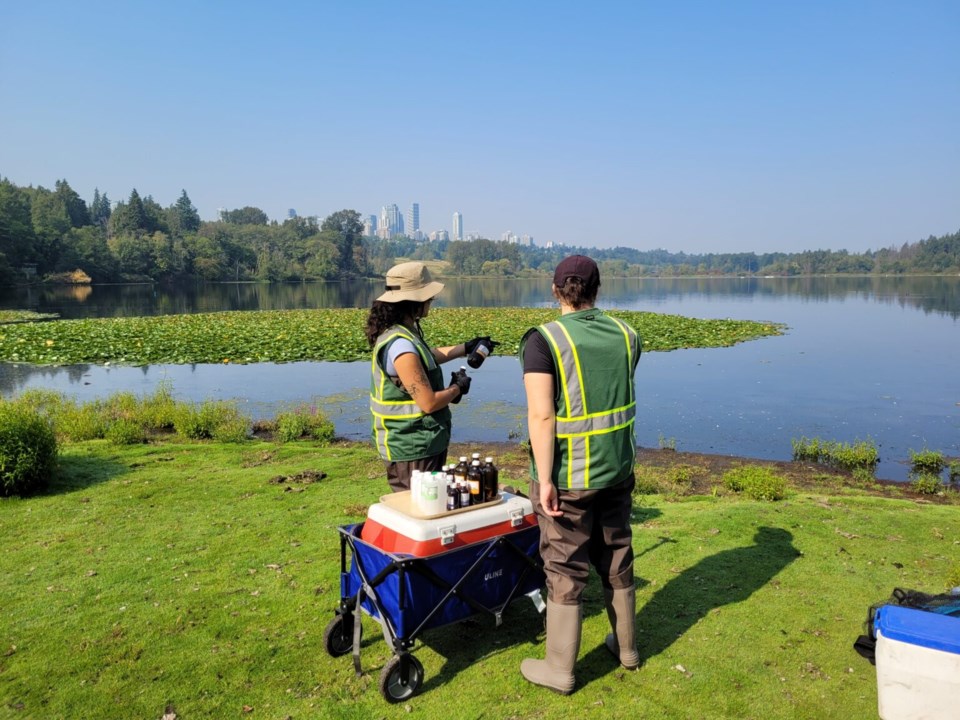The City of Burnaby wants to make Deer Lake swimmable again, but experts say it'll take a lot of work to get there.
Researchers with SFU, partnering with Burnaby's Civic Innovation Lab, have assessed the state of the lake and recently proposed possible remediation strategies at a presentation to Burnaby's environment committee March 31.
Coun. Joe Keithley summarized the presentation: "The lake's in rough shape."
He reminded the committee it used to be a swimming hot spot.
"When I was a kid, we used to actually swim there on a regular basis," he said. "It was still clean, and nobody got sick ... I would not recommend that now."
Coun. Daniel Tetrault asked if there was any chance Deer Lake could be made swimmable again.
"It definitely would take a lot of time and a lot of effort to get to that point," replied Stephanie Renkers, a research associate at SFU.
She said the lake needs more remedial work to help with the contaminated sediments, but with diligent monitoring and the recommended remediation strategies, the lake can be made swimmable again.
While the quickest way to improve the quality of the lake would be to remove the sediment with elevated contaminants, it's not recommended.
"That’s very invasive, so you don’t want to be impacting, especially, the protected endangered species," Renkers said.
Renkers suggested using a mix of the remediation strategies, which could include:
- Gutter filter technology along the busy nearby roadways
- Settling ponds or bioinfiltration ponds
- Porous materials like sawdust to absorb heavy metal ions potentially leeching into the ground
- Jellyfish filter systems along stormwater drains and catch basins
Sediment samples collected showed certain protected wildlife areas are at risk of "accumulating contaminants of concern," which Renkers called "a little alarming."
Renkers noted they also found indicators of poor water quality.
"The lake's health is most likely on the decline," she said.
Renkers said some legacy contaminants could even date back to when Deer Lake was a part of the Oakalla Prison complex where pesticides and herbicides could have been used, then leached into the ground and moved toward the lake over time.
But researchers were also "happy to see" that Canada goose and duck poop aren't negatively impacting the nitrogen or phosphorus levels in the water.
A city report from 1999 indicated the city wasn't seeking to improve the water quality to a swimmable level, but as recently as 2022, staff said it was a "long-term goal" of the city to make it swimmable again.
Rebekah Mahaffey, executive director of the Civic Innovation Lab, said city staff have the full results and research tables and will review the remediation strategies.
Staff will bring future recommendations for council consideration through the regular budget cycle, according to Mahaffey.



